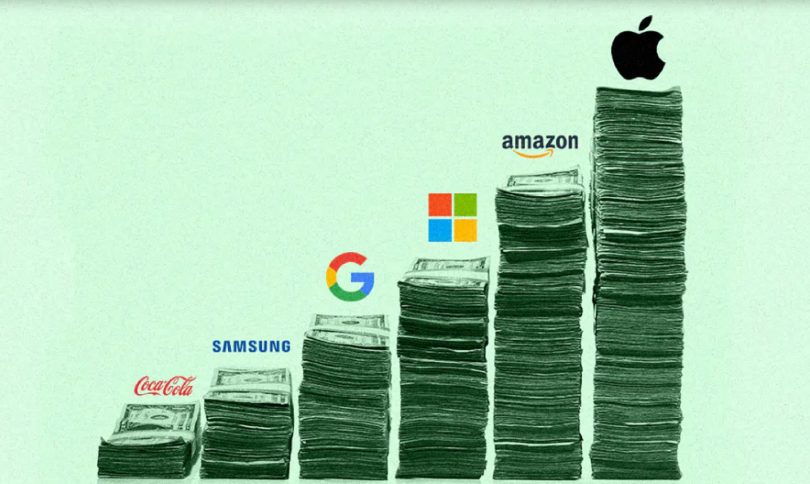Table of Contents
- 1 Why is Family Heritage Important for Brand Identity and Loyalty?
- 2 Benefits of Elevating Brand Identity and Loyalty
- 3 How To Successfully Weave Family History Fabric Into The Brand Identity
- 4 Steps to Elevate Brand Identity and Loyalty
- 5 Elevate your Brand Loyalty
The success of brand identity and royalty depends more on emotional aspects than rational values. According to the 2023 Customer Loyalty Engagement Index (CLEI), customers’ perception of a brand has changed drastically, mainly due to shifting climatic, political, and economic landscapes.
Customers and potential stakeholders are increasingly taking an emotional look at values and focusing more on how the brand meets their expectations. Whatever these expectations are, they can make or break the brand loyalty.
Therefore, a company must establish and foster emotional attachment with the customers to make its brand uniquely recognizable. An emotional attachment makes the customers feel like they know and understand the brand better.
Family heritage has proven to be the leading player in forging emotional connections with customers. Stories about the company, its founders, and the top leadership emphasize its authenticity while evoking nostalgia and elevating brand identity and loyalty.
This guide demonstrates how family heritage evokes emotion and earns brand loyalty for companies and leaders.
Why is Family Heritage Important for Brand Identity and Loyalty?

Ford Motor Company has notably allocated top leadership positions to the Ford family to ensure continuity and the preservation of values.
Family heritage is vital for brand identity and loyalty because it differentiates and establishes consumer trust. Another reason family heritage is so crucial in building a brand because it creates an emotional connection like no other in the industry.
With the erratic dynamics in the corporate world, people are getting more immersed in the digital and virtual world. Consequently, they miss the good old times when things were authentic, simple, and more tangible. Family history fills this void by unearthing authentic stories about the brand and its founders, evoking emotion, which has proven to be a key seller for a brand.
Moreover, family history conveys the business tradition and history that, when communicated, influences consumers’ perception of the brand. And the more the brand is associated with heritage and tradition, the more likely the reputation will grow.
Family Heritage Evokes Nostalgia
One of the reasons family heritage is so effective in elevating brand identity and loyalty is its ability to evoke nostalgia. Nostalgia is known to be more powerful than other emotions when creating a long-lasting emotional attachment with consumers.
For this reason, companies are increasingly adopting images, music, and adverts with a strong association with an era or time. As a result, they give the brand a sense of heritage and tradition, as is the case with image style, visual identity, and product smell.
Coca Cola’s ad , seen below, features the iconic polar bears, from the ’90s, enjoying a Coke together in a winter wonderland. Coke uses nostalgia to show the simplicity and sweetness of celebrating the holiday season and the joy of sharing a Coke with loved ones.
For example, Disney+ has played the nostalgia card by unveiling new stories, sequels, and a content library that takes the audience back in time. The recently produced series dubbed “The Book of Boba Fett” is set in the Star Wars universe and a spin-off of The Mandalorian, which evokes nostalgia by seemingly expanding the storyline.
Family Heritage Conveys a Compelling Brand Story
Brand and CEO storytelling is crucial in leveraging the power of family history. A tactfully crafted, unique story is enough for consumers to associate with the brand. It also makes them feel part and parcel of this history, which, in turn, provides more incentives for people to purchase from the company.
A Compelling Brand Story Speaks Authenticity and Core Values
Family heritage can elaborate on how the company started, the hurdles stakeholders encountered, what has held the company intact for years, and more. Detailed discoveries can serve as perfect sources of personal narratives and lessons to make your brand one of a kind.
As an executive leader, you can leverage family history to demonstrate the company’s commitment to remain true to its values, promises, and mission, which create a sense of integrity and reliability among consumers. This way, you build trust with customers and influence employee perception.

investor, philanthropist and Berkshire Hathaway co-founder, chairman and CEO appreciates the middle-class family he grew up in.
Most importantly, leveraging family heritage for brand loyalty puts the company’s authenticity beyond the CEOs and other leaders. Sure, leaders are crucial in enhancing brand authenticity, but it’s better to have the company’s heritage engrained in the entire company.
To the consumer, the company’s authenticity should not stop at the CEO but should be evident in the organizational policies and employee conduct. Apple knocks this out of the park, and its emergence as the world’s top phone maker in 2023 shows its perfection in fostering authenticity.
Also, the story of Steve Jobs and crew starting Apple. Inc. in a garage embodies crucial design, simplicity, and innovation values. The brand story depicts Apple’s authenticity and makes the consumers feel like they’re part of this technological journey.
A Compelling Brand Story Is a Key Differentiator.
When family history unearths a compelling brand story, it helps the company stand out as a product seller and a conveyor of values and experiences that align with consumers’ beliefs. The Coca-Cola Company also serves as a good example, as it adds the differentiation of bringing people together unlike any other beverage company.
Campaigns like Share A Coke, I’d Like To Buy The World A Coke depict togetherness and sharing moments. These efforts help Coca-Cola emphasize that it’s not just focused on drinks but also is a catalyst of joy and unity in the consumers’ everyday lives.
Evidently, storytelling can create a legacy that makes products and services a crucial consideration in the consumers’ minds. The inspiring and relatable stories help companies build a robust emotional connection that differentiates them and drives brand identity and loyalty.
Benefits of Elevating Brand Identity and Loyalty

Strong brands have latitude in the competitive market
Some of the apparent benefits of having strong brand loyalty include having the leeway to develop a more significant market share, charge a premium without increasing costs, expand the product lines, and possess much more considerable influence as a company.
1. Positive Brand Identity and Loyalty Boosts Profitability
Below are other benefits that robust brand loyalty can have on the return on investment (RO1):
a) Increased Profit Margin
A company with a strong brand identity and loyalty has its products or services perceived at a higher value than competitors. For this reason, most of these companies can easily set higher processes, thus drastically increasing their profit margins.
b) Increased Sales
With strong brand loyalty, companies can quickly sell their offerings as consumers want to be associated with the best that can come from them. The drive to get the best helps increase sales as loyal consumers flock for new products from the company’s popular segments, despising any offerings from competitors.
c) Increased Order Value per Customer
Consumers will be free to spend more on a company with positive brand loyalty, leading to immense profitability. The production and promotion costs may be equal across competitors, but the consumers’ behavior of aligning to solid brand names causes inequalities in order values and profitability.
d) Reduced Promotion Costs
Once your company establishes a robust brand, consumers prioritize it in shopping. Therefore, you won’t need to spend much on advertising, as consumers trust your company and its products.
e) Maximum Customer Retention
Promotion costs are further reduced by the fact that the companies with positive brand equity as the current customers will come back. For example, Apple sells an interconnecting constellation of products to its customer base and has noted a cycle where customers return ASAP when they wear out.
While the customer turnover could result from other factors like Apple’s innovation or devices’ ease of use, it’s still clear that the positive brand has a hand in this.
2. Positive Brand Identity and Loyalty Influences the Corporate Culture

LG CEO William Cho has actively engaged with company employees through end -of-year F.U.N. Talk’
A company’s brand identity is reflected in the coat of arms and its mission, values, and corporate culture. A clear narrative of what the company stands for, why it started, and what it seeks to achieve helps set an aligned culture that shapes employees’ loyalty and morale. Here’s how:
a) Employee Morale and Loyalty
When you use family heritage to elevate your company’s brand identity, employees will likely feel more aligned with the values and mission. As a result, they report pride in their work and job satisfaction.
Similarly, the employees identifying with the company’s values will likely enjoy working for the company, leading to employee retention, reduced turnover, and associated costs.
b) Corporate Culture
82% of customers shop from brands that share their values, highlighting the importance of a brand identity that aligns with consumer and employee values. Using family heritage to elevate the brand identity makes it easier for CEOs to align corporate culture with family values.
How To Successfully Weave Family History Fabric Into The Brand Identity
A company’s family history, including its heritage, values, and founders, can help strengthen its brand identity and loyalty. However, you have to know the right spots to hit to unearth compelling narratives that give the company an identity and help customers understand its mission.
Below are aspects of family history that can successfully integrate into the brand identity to attract loyalty.
1. Family Heritage and Founders’ Stories

Chief executives who are members of the Business Roundtable, include, left to right, front row: Julie Sweet of Accenture North America, Brian Moynihan of Bank of America, Tim Cook of Apple, Robert F. Smith of Vista Equity Partners of Austin. Back row: Jeff Bezos of Amazon, Mary Barra of General Motors and Larry Fink of BlackRock.
A comprehensive family history research can help unearth the stories that motivated business founders. With the ability to go back in time, expert genealogists can trace the business founders’ lineage and come up with names, dates, anecdotes, and records to substantiate the findings.
We have seen companies like Ford Motor Company use the stories of their founders to connect with the consumers and humanize the brand. Ford champions its founder, Henry Ford, as an astute innovator in the automotive industry. The story cites the founder’s production of the Model T, which changed the transport industry in the US.
2. Longevity And Tradition

Family members and relatives can offer insights into their ethics and traditions
Family history research also helps a company or CEO learn about a tradition observed down the family line as a show of quality, resilience, etc. Genealogy can help uncover rituals and traditions carried out by ancestors and those intended to thrive in personal and corporate leadership.
The Brooks Brothers clothing retailer leverages its long history of serving dozens of US presidents to establish its brand as keen on quality and rich in heritage. Brooks Brothers company uses this narrative to position its brand as a pioneer of classic American style.
3. Use Of Coats of Arms or Heraldic Symbols

A herald painter sketching the coat of arms
Heraldic symbols such as the coat of arms have also proven to help establish an identity for the CEO and the company. With family history, finding out if the business founders had a coat of arms becomes easier.
If not, family heritage can help you create a coat of arms that conveys your identity, credibility, and tradition.
The practice is more common in Europe, but American executives and corporations are increasingly adopting it for its proven effectiveness in enhancing corporate and personal narratives, which drive brand identity and loyalty. The Harvard and Yale universities are perfect examples of institutions that have embraced the use of coats of arms to reflect their heritage.
The Story of Sam Walton and Walmart

Walmart uses its founder’s story as key to its brand identity
Walmart has a compelling narrative about its founder, Sam Walton, and how his traditions and values shaped the ethos of the business. The company appreciates Walton’s early life, entrepreneurial spirit, and commitment to customer service as key to its brand identity.
Walton’s narrative starts in his early life, learning from his family about the value of frugality, hard work, and entrepreneurship. His struggles during events like the Great Depression also helped establish a philosophy for his start-up.
The company still holds Walton’s initial vision to offer competitive prices and his culture of partnership and respect for employees.
Walmart’s integration of family heritage and personal values into its brand identity has helped it enhance consumer trust and create a unique corporate culture. This narrative is a perfect example of how the company’s family history and founders elevated its brand identity and loyalty.
It’s also a clear indication that when a company’s brand identity is rooted in family heritage, its connection with stakeholders endures.
Steps to Elevate Brand Identity and Loyalty
Whether your company is new or established, you can leverage history, emotion, and tradition. You need a comprehensive genealogy report about yourself or the business founders and look for unique instances that could link to current values and operations.
Below are steps to develop a brand story to elevate brand loyalty.
1. Understand Your Why
According to Simon Sinek, compelling organizations have a compelling purpose behind their establishments and brands. In his book “Start with Why,” Simon faults advertisers for focusing more on the How than the why. Therefore, you should have a clear narrative on why your company is doing what it does and what drives it.
The answer to this demonstrates the brand’s values that guide the company in handling stakeholders. Consumers will likely understand the company’s purpose through its terms of service, innovation, and quality.

Jeff Bezos’ clear purpose for Amazon boosts its brand identity and loyalty
Developing an authentic story about your brand will require introspection on who you are as an organization, where you have been, and where you want to go.
2. Drive Awareness
Once you have ideas from your family heritage, the next step is to drive awareness for your company. Awareness techniques include creating emotional conversations and emphasizing brand values over product attributes.
Once you have a comprehensive genealogical report, it becomes easy to map the roots of your brand. It also helps you align the business operations and associations to the heritage you want to create for your brand.
The next step will be to weave that heritage through your brand’s messaging and communication. You should also test the messaging with customers to understand its effectiveness and customer reaction.
Elevate your Brand Loyalty
Brand identity has become a crucial asset for companies, given consumers’ notable shift in alignment towards an emotional look at values and how companies meet their expectations. For this reason, business leaders must find a unique story about themselves and their companies that they can leverage to create a solid and authentic identity.
Luckily, Record Click has everything you need, from records to expert genealogists, to help you conduct accurate family history research and extract critical stories that can elevate your brand.
Hire a genealogist at RecordClick to study family values in your company and your background and identify critical aspects that can boost brand loyalty.
Record Click offers a wide array of services and a diverse genealogy team that is Accredited, Credentialed, Professional, and Experienced to break open family trees and reveal unique family histories.
A genealogy company shouldn’t only be about local searching; that’s why our diverse team includes specialists from all across the United States and the globe. Regardless of whether the ancestral background is from Australia, the United Kingdom, Canada, or other parts of the world, we can help identify all the clues.
Our expertise is record retrieval! You can ask our researchers about families worldwide, geographical migrations, marriages, affairs of the heart, medical family trees, death records, land deeds, assets, and much more.
We can customize your family search for the genealogical research you need, your time frame, and your budget. We offer free consultation and an automatic discount for all new customers.
Contact us today or schedule a call.







